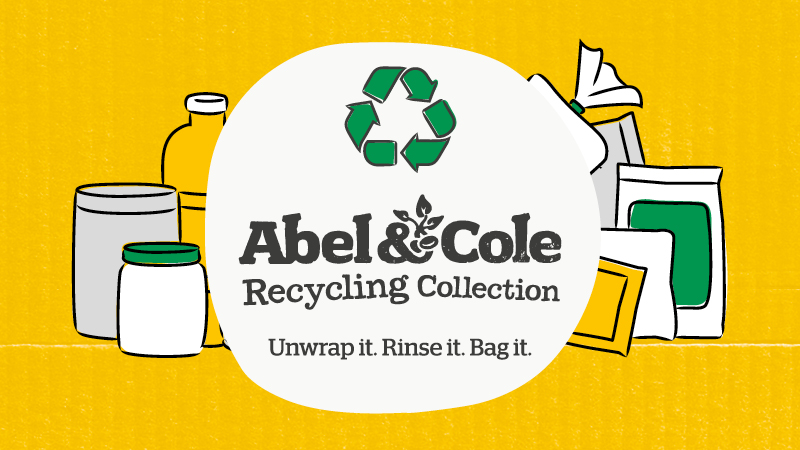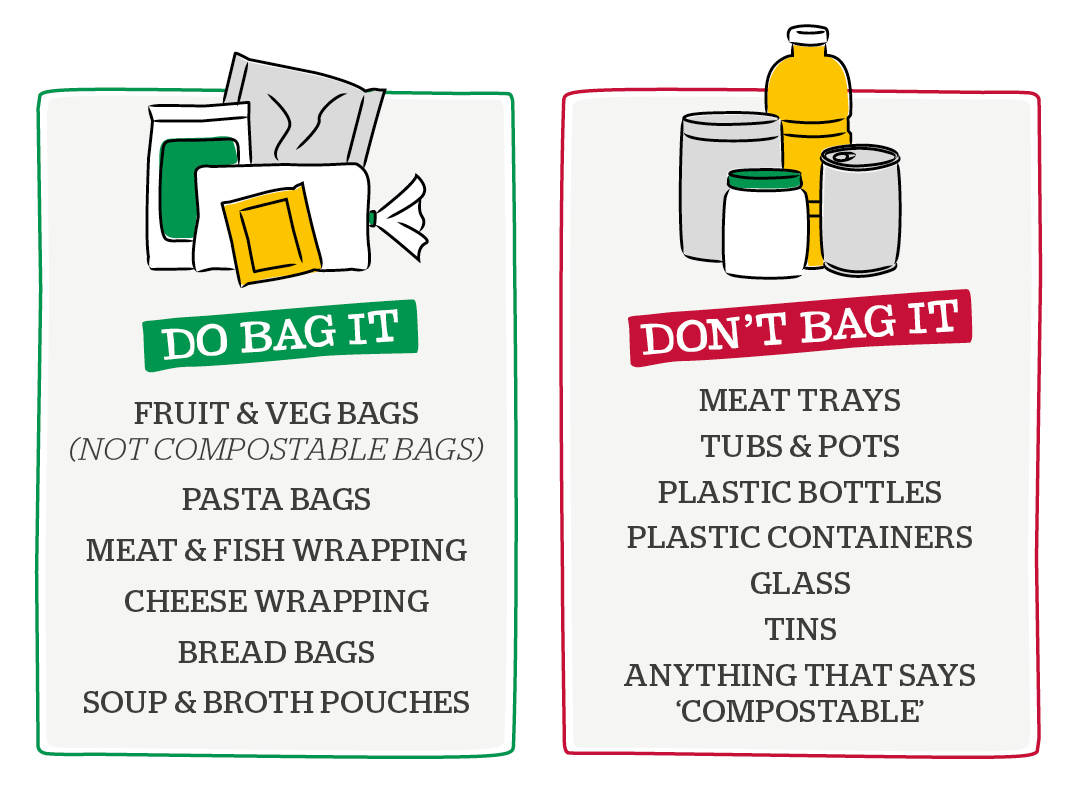Our Recycling Collection Trial


“The Recycling Collection trial is part of a national scheme to reduce the amount of plastic that goes to landfill. In collaboration with our Flexible Plastic Fund and UK Plastics Pact partners, we will be collecting hard-to-recycle plastic bags and wrapping from your Abel & Cole deliveries. We’ll then send this material to our recycling partner, Yes Recycling, to be transformed into sustainable building materials right here in the UK. The learnings from this trial will help us work out a scalable process that can eventually be passed over to local councils.”
“In 2019, Ecosurety and the other Flexible Plastic Fund founders identified flexible plastic films as being one of the largest waste categories in the UK that sadly does not get recycled. Since then, they have done excellent work bringing stakeholders together to tackle this issue and ensure that the materials don't go to landfill by facilitating Recycling Collection trials like this one.”
“Whilst it's our responsibility as a retailer to eliminate as many of these materials as possible from our packaging, flexible plastic films are, in many cases, the most effective material for the job and can't be easily replaced – for example in meat packaging. These materials are not normally collected for recycling because they are very hard to identify, but they have value and can be recycled! It's therefore important for us to make sure that any plastic bags and wrapping that we do use end up at a facility that can process them, and not in landfill. But this requires collaboration between retailers and recyclers, which is why we're trialling collections.”
“Because this is a new initiative, we need to learn from both our customers and recycling partner, so that we can understand the best way to get high-quality material to recycling in a way that is easy for everyone to stick with in the long-term. Once we've figured that out, we hope to roll out this initiative to all of our customers across the UK.”
“Nearly all plastics can be recycled, however different plastics can't be recycled together as this results in poor quality material. Since recyclers make their income from selling recycled plastic back to manufacturers, it’s only profitable to recycle plastics that can be easily identified and collected in large enough quantities to run long production cycles.
“Fortunately, the majority of plastic food packaging is made from a mixture of just four plastics (LDPE, HDPE, PET, PP), which can be identified on rigid packaging thanks to 'resin identification numbers'. These are embossed onto products such as drinks bottles and yogurt pots, but are harder to verify for flexible films, which are easily broken apart.
“As a result, it's very hard for recyclers to know how much they have of any one plastic type, and they can't be sure of what the quality of their finished product will be. Working with retailers is a huge benefit to them because we have a record of what materials are used for our packaging, and we can instruct our customers to return only what will be valuable to our partners. This collaboration de-risks the process of collecting flexible packaging and (in parallel to changing our packaging as much as possible to be suitable for recycling) will lead to more widespread collections in the long-term.”
“We’ve tried to make the whole process as easy as possible. If you’re taking part in our Recycling Collection trial, then there’s just three simple steps you need to follow to help prepare your packaging for collection and recycling.”
1. Unwrap it – First, separate any plastic bags and wrapping from the products in your Abel & Cole delivery.
2. Rinse it – Then rinse them to remove any food residue and dry them off to help prepare them for recycling.
3. Bag it – Finally, put the rinsed, dry packaging into your Abel & Cole Recycling Collection bag.
“When your bag is full, leave it out with the rest of your boxes for your driver to collect. We’ll leave you a new bag in its place, ready to refill!”

Published September 2021


